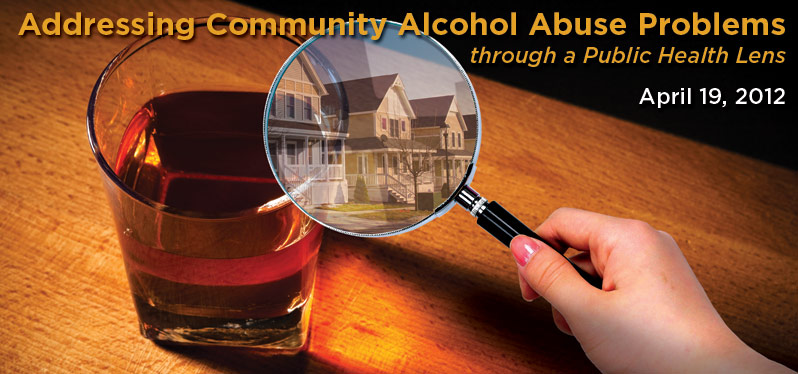North Texas Health Forum
Highlights from the 2012 North Texas Health Forum
On April 19, 2012, the UNT Health Science Center School of Public Health (SPH) and Tarrant County Challenge co-sponsored the 5th annual North Texas Health Forum on “Addressing Community Alcohol Abuse Problems through a Public Health Lens.” Alcohol abuse is not only a significant issue in the North Texas region, but also in communities all over the country.
This community program was developed under the direction of Dennis Thombs, PhD, chairman of the SPH Department of Behavioral and Community Health, and Ms. Jennifer Gilley, Tarrant County Challenge executive director, and included sessions with experts in alcohol related policy and research. The sessions focused on the multifaceted relationship between alcohol and injury from clinical, research and policy development perspectives.
The community program opened with “MADD’S National and Texas Legislative Initiatives” presented by John Ansbach, Chief Legal Officer at the national office for Mothers Against Drunk Driving in Irving, Texas. This session presented an overview of drunk driving in Texas and MADD’s legislative initiatives in response to this issue.
Ansbach’s presentation
This session was followed by “Maximizing Moments with Drinkers: Brief Interventions for Alcohol Misuse” presented by Scott T. Walters, PhD, professor of Behavioral and Community Health at the UNT Health Science Center SPH. In this session, Dr. Walters presented research supporting the use of brief interventions in emergency medical departments as a strategy to address alcohol abuse.
Walter’s presentation
Keynote speaker was Alexander Wagenaar, PhD, professor of Health Outcomes and Policy and member of the graduate faculty of Epidemiology at the University of Florida College of
Medicine. He has published a book, numerous book chapters, and over 170 scientific articles on social epidemiology, public health policy, legal evaluations, community intervention trials, alcohol and tobacco studies, violence prevention, traffic safety, and injury control. His research has earned numerous honors and awards, and he has been named
by the Institute for Scientific Information as a Highly Cited Scientist, an honor limited to less than 1% of the top scientists worldwide.
However, the attention that has been received by Dr. Wagenaar’s research extends beyond the scientific community. As a new PhD decades ago, his first study of the effects of raising the drinking age to 21 launched him into the limelight, with stories in the New York Times, national network news and elsewhere–and MADD then effectively used his scientific results to get President Reagan to raise the drinking age to 21 nationally. This pattern is repeated regularly throughout his career, including most recently his research
on effects of alcohol taxes on disease and death rates.
Dr. Wagenaar’s keynote address, “Killin’ Time:
Alcohol and Injury,” presented alcohol control policy options and the evidence behind them.


Social media